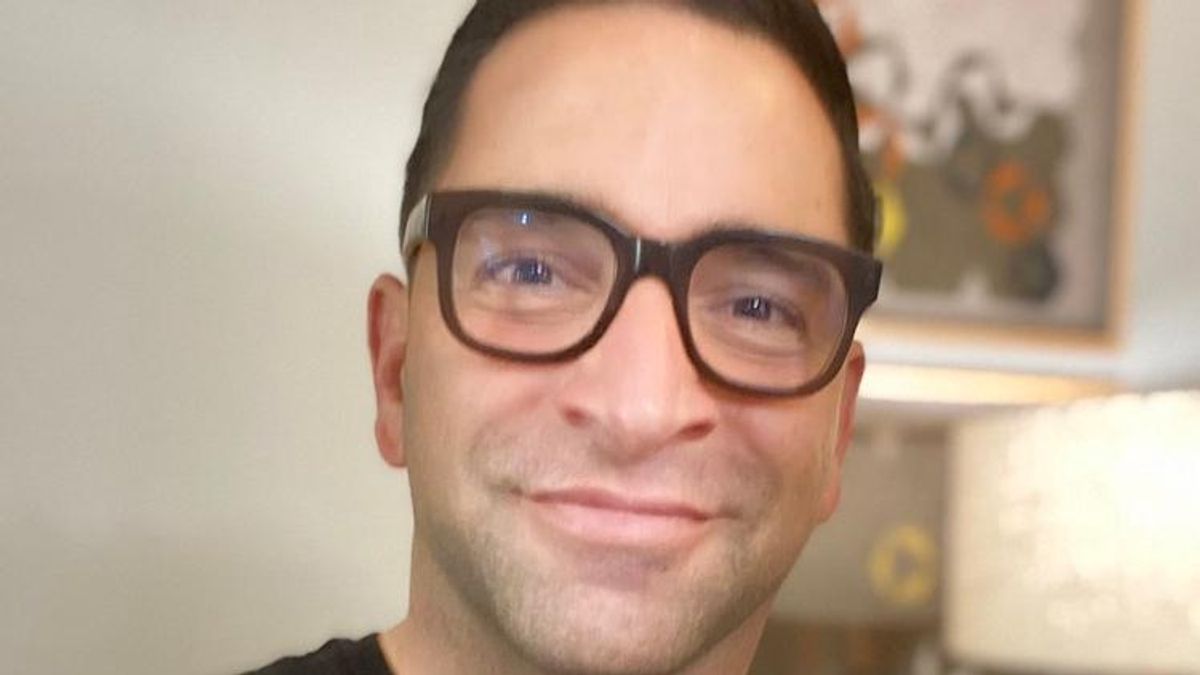Voices
Diversity Leader at Twitter on Making Pride a Year-Long Exercise

This out Latinx executive says true allyship means leaning into discomfort and vulnerability.
June 14 2021 8:51 PM EST
May 31 2023 4:50 PM EST
By continuing to use our site, you agree to our Private Policy and Terms of Use.

This out Latinx executive says true allyship means leaning into discomfort and vulnerability.
Every year during Pride season, I make a point of taking stock -- of the man I've become, the family I've built, my hopes for our community, and what I'm doing to help make them real. It hasn't always been this way, though ... quite the opposite, in fact.
I grew up a queer Latinx kid from a Catholic immigrant family in the agricultural Central Valley of California during the height of the AIDS epidemic. The only thing I knew about gay people back then was what I saw on the news and heard at church. Our clergy told us that gay people were abominations who would burn in hell. At home, the TV news told us they were monsters. Everywhere I looked, I was told to hate myself and be scared of what I represented. The drumbeat was loud and relentless.
Being a light-skinned, closeted Latinx boy, I learned to hide who I was at a very early age. Throughout high school and college, I carefully perfected a version of myself that I thought would minimize humiliation, rejection, and harm. I was wrong. By the time I reached 25, I had been kicked out of homes, beat up, arrested, and sexually assaulted.
The hardest part wasn't even the dehumanization. After a lifetime of being told you're "less than," it grows familiar. The hardest part was the loneliness. To this day, I mourn the loss of the millions from our community who came before us -- the would-be friends and mentors of an entire generation whose lives were tragically cut short by AIDS. The intergenerational trauma that many of us in the LGBTQ+ community still carry around with us is profound.
But the world has changed, and so have I. Today I strive to be the example that I never had for anyone who might need it. Despite the risk, I'm intentional about sharing my big gay family on social media. I know what a difference it would have made for me during the hardest parts of life to have someone show me that a future like mine was possible.
I also recognize the advantage I have as a light-skinned cisgender man. I'm intentional about centering the experiences of the most marginalized in our community and using my privilege to uplift others. I did that for six years in my work at San Francisco AIDS Foundation, and I proudly do that today in my work as a commissioner on the San Francisco Human Rights Commission.
After surviving several toxic workplaces -- and even being fired for being gay -- I forged a career in diversity, equity, and inclusion (DEI). Through this work, I strive to create cultures where everyone feels empowered to bring their full, authentic selves to work. Today, I help lead global inclusion and diversity at Twitter, where we're on a journey to be the most diverse, inclusive, and accessible tech company. The team I've built is one of the most diverse at the company. We're Black, Brown, and most colors in between. We're Christian, Catholic, Muslim, Jewish, and atheist. About half of us proudly identify as part of the LGBTQ+ community. Together, we partner with more than 6,100 Tweeps (that's what we call ourselves) around the world to drive progress with the company.
Our industry has work to do, and Twitter is no exception. But I'm encouraged by the progress we're making. Data from our 2019 Global Inclusion Survey show that 10 percent of U.S. Tweeps self-identify as part of the LGBTQ+ community, outpacing many peer companies. With the help of our LGBTQ+ Business Resource Group (@TwitterOpen) and our Trans Task Force, we've standardized sharing pronouns within and on Twitter. We're exploring ways to expand benefits, resources, and support for Tweeps transitioning in the workplace. I'm proud of the company's national Human Rights Campaign Corporate Equality Index Score of 100, which reflects our long-standing support of protections for the LGBTQ+ community and opposition to harmful legislation aimed at restricting the rights of LGBTQ+ people in society.
It's an especially important time for diversity, equity, and inclusion. Much like advocacy for the LGBTQ+ community, it requires practicing allyship every day. There are no more sidelines, and cheering from the stands doesn't cut it anymore. We have a duty to be active accomplices in uplifting the equal dignity of every human life. That often means leaning into discomfort and vulnerability. Take it from me -- you won't always get it right, but that's part of the journey. But being accountable, saying you're sorry, and recommitting to growth is far more powerful than perfection.
If 2020 reminded us of anything, it's that our many struggles are connected. As Pride season in the U.S. comes to a close, let's stand together against hatred and violence in all its forms -- not just transphobia and homophobia, but also racism, misogyny, xenophobia, anti-Semitism, Islamophobia, and ableism. Because we're all in this together, #UntilWeAllBelong.
James Loduca is the senior director of global inclusion and diversity at Twitter.
Fans thirsting over Chris Colfer's sexy new muscles for Coachella